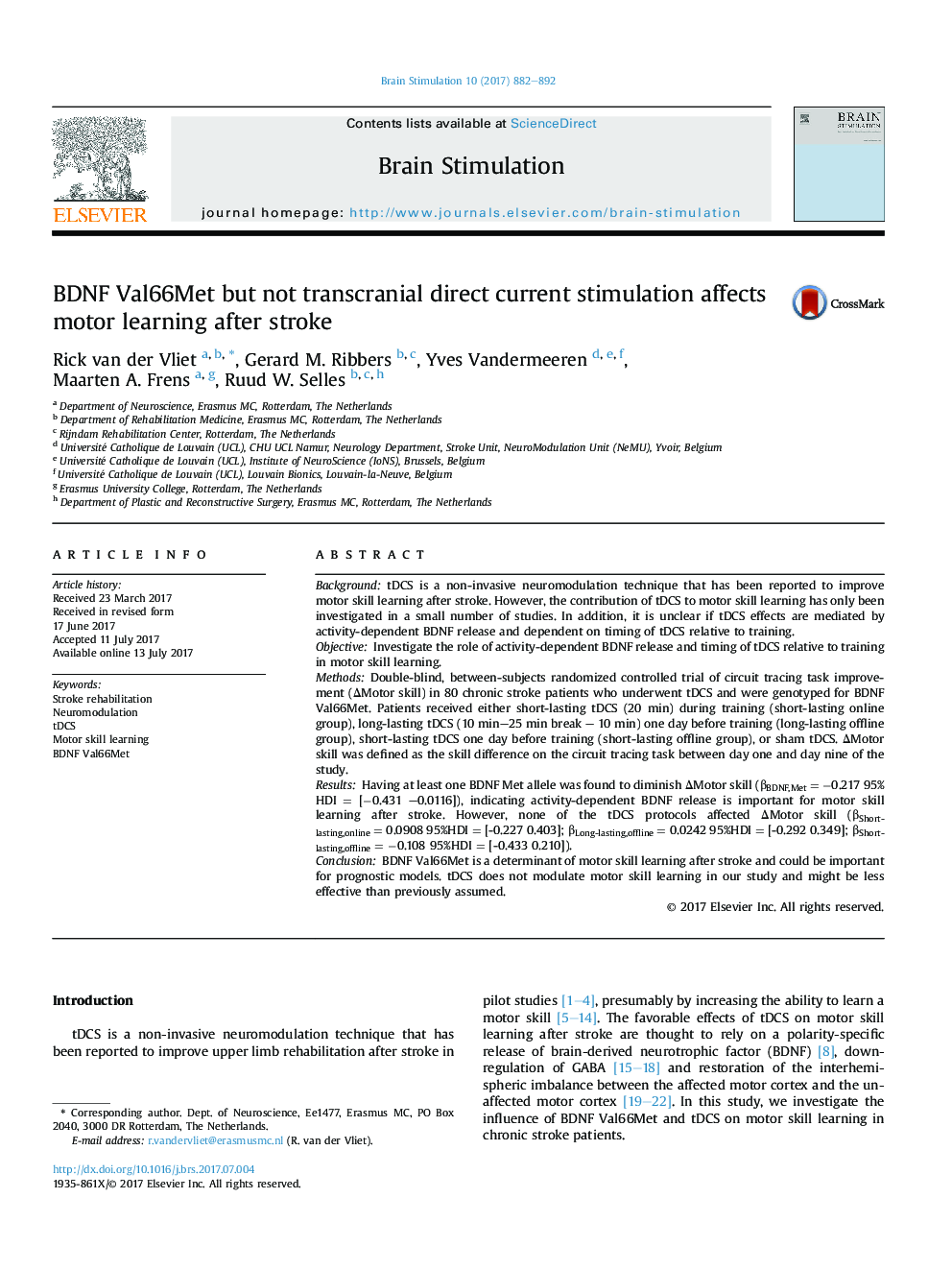| کد مقاله | کد نشریه | سال انتشار | مقاله انگلیسی | نسخه تمام متن |
|---|---|---|---|---|
| 5626791 | 1579646 | 2017 | 11 صفحه PDF | دانلود رایگان |

- Chronic stroke patients who carry a BDNF Val66Met allele acquire a motor skill more slowly, as is true for healthy carriers.
- Screening for BDNF Val66Met after stroke might improve models of stroke recovery.
- tDCS does not modulate motor skill learning in our study and might be less effective than previously assumed.
- Neuromodulation with tDCS might only be effective in a highly selected group of stroke patients.
BackgroundtDCS is a non-invasive neuromodulation technique that has been reported to improve motor skill learning after stroke. However, the contribution of tDCS to motor skill learning has only been investigated in a small number of studies. In addition, it is unclear if tDCS effects are mediated by activity-dependent BDNF release and dependent on timing of tDCS relative to training.ObjectiveInvestigate the role of activity-dependent BDNF release and timing of tDCS relative to training in motor skill learning.MethodsDouble-blind, between-subjects randomized controlled trial of circuit tracing task improvement (ÎMotor skill) in 80 chronic stroke patients who underwent tDCS and were genotyped for BDNF Val66Met. Patients received either short-lasting tDCS (20 min) during training (short-lasting online group), long-lasting tDCS (10 min-25 min break - 10 min) one day before training (long-lasting offline group), short-lasting tDCS one day before training (short-lasting offline group), or sham tDCS. ÎMotor skill was defined as the skill difference on the circuit tracing task between day one and day nine of the study.ResultsHaving at least one BDNF Met allele was found to diminish ÎMotor skill (βBDNF,Met = â0.217 95%HDI = [â0.431 -0.0116]), indicating activity-dependent BDNF release is important for motor skill learning after stroke. However, none of the tDCS protocols affected ÎMotor skill (βShort-lasting,online = 0.0908 95%HDI = [-0.227 0.403]; βLong-lasting,offline = 0.0242 95%HDI = [-0.292 0.349]; βShort-lasting,offline = â0.108 95%HDI = [-0.433 0.210]).ConclusionBDNF Val66Met is a determinant of motor skill learning after stroke and could be important for prognostic models. tDCS does not modulate motor skill learning in our study and might be less effective than previously assumed.
Journal: Brain Stimulation - Volume 10, Issue 5, SeptemberâOctober 2017, Pages 882-892